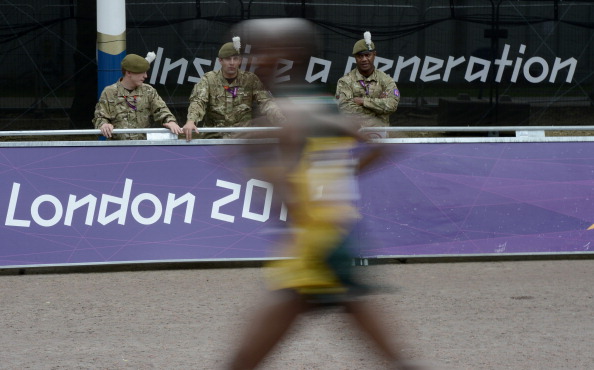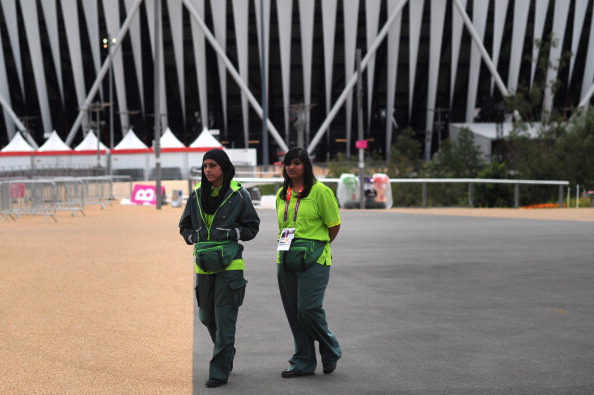By Duncan Mackay at the Main Press Centre on the Olympic Park in London
August 30 – G4S has ruled out bidding for the security contracts at the Rio 2016 Olympics and Paralympics following the fiasco at London 2012, which it confirmed will cost the company £50 million ($78 million/€64 million).
G4S managed to provide only 7,800 staff for the Olympics at peak times, compared with a promised 10,400 and the Government had to draft in troops to make up the shortfall and ensure that the Games passed off safely.
The company later donated £2.5 million ($4 million/€3 million) to British military sports and welfare organisations to express its appreciation.
The firm has decided to freeze its interim dividend, and G4S shares were down over two per cent when the markets opened in London today.
G4S has begun an investigation into the failure, led by PricewaterhouseCoopers, which should be completed by the end of next month, in an effort to “rebuild the reputation” of the group.
Nick Buckles, the G4S chief executive, today refused to elaborate on what went wrong with the Olympics contract, and why it covered only 83 per cent of the shifts promised, while the inquiry is ongoing.
The British multinational security services company, whose headquarters are in Crawley, is the world’s largest security company measured by revenues and has operations in around 125 countries, employing a total of 657,000 staff.
But it seems set to sit out Olympics in the future, starting with Rio in four years, amid fears that another major problem could cause even more serious embarrassment.

It has also withdrawn from bidding for the security contract for the 2014 FIFA World Cup in Brazil.
“The profit upside is not as great as the reputational downside if things go wrong,” Buckles admitted.
“We were deeply disappointed that we had significant issues with the London 2012 Olympics contract and are very grateful to the military and the police for their support in helping us to deliver a safe and secure Games.”
The decision not to bid for the Brazilian contracts would not unduly affect the future profits of G4S, claimed Buckles.
“The Olympics and World Cup were additional business that we hoped to get,” he said.
“Even with the Olympics contract here [London 2012], we were not expecting to make a huge amount of profit from it.
“It was a flagship business for us internationally.”
Buckles said that he expected G4S to deliver what it promised for the Paralympics, which are due to open tomorrow.
The company has been contracted to supply 5,000 staff.
“We are confident that we have an assured security workforce for the Paralympic Games and do not anticipate any workforce shortfall issues to arise,” said Buckles.
The company has so far managed to retain the business it had before the problems at London with £3.8 billion ($6 billion/€4.8 billion) worth of contracts still in the pipeline, Buckles claimed.
More than half of G4S’ revenue in Britain comes from Government contacts, including deals to run prisons and some police services due later this year.
The announcement about the London 2012 losses came as G4S reported pre-tax profits of £61 million ($97 million/€77 million) for the period, down from £151 million ($239 million/€190 million) in the first six months of 2011.
Contact the writer of this story at zib.l1745328120labto1745328120ofdlr1745328120owedi1745328120sni@y1745328120akcam1745328120.nacn1745328120ud1745328120

